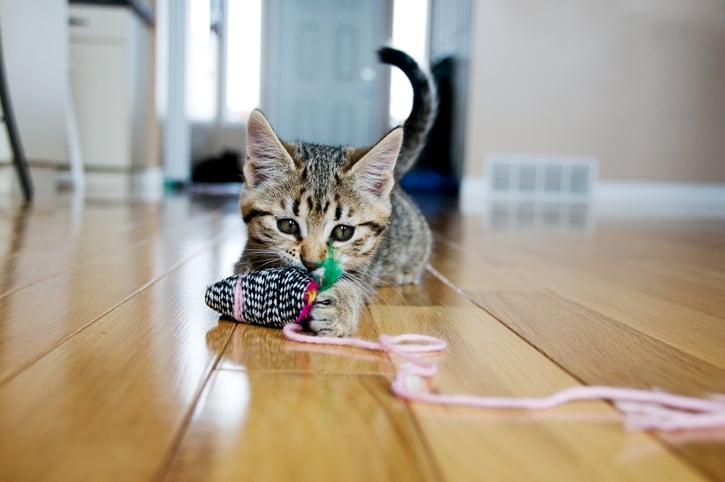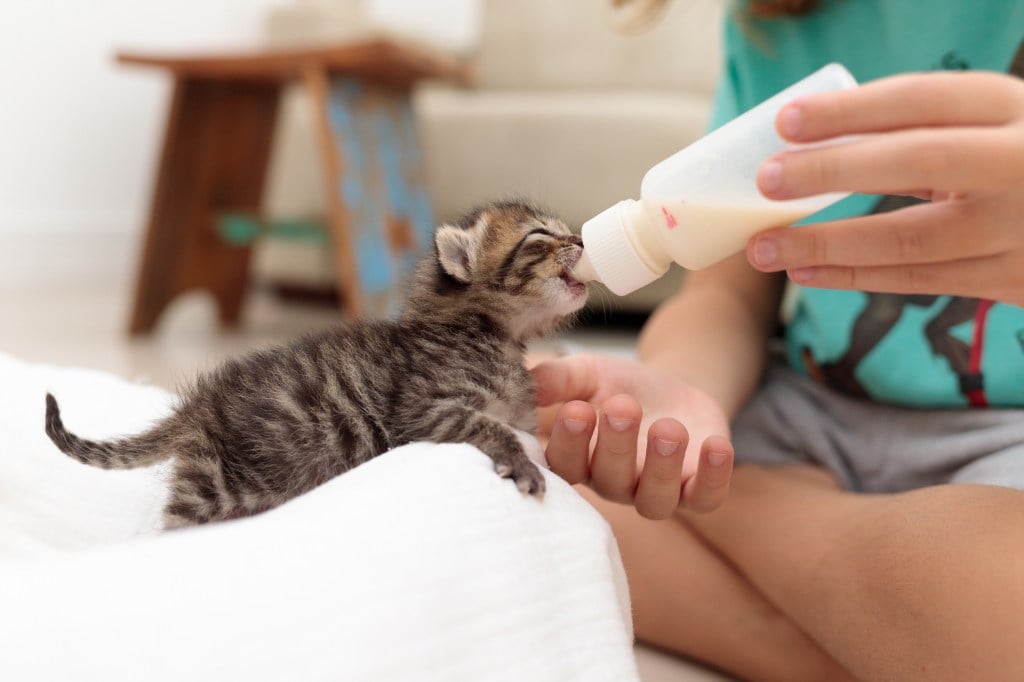Key Takeaways
- Kittens often eat non-food objects that can have severe and deadly effects.
- Foreign body obstructions can be caused by consuming ribbons, string, cat toys, and hairballs.
- Symptoms include vomiting, diarrhea, pain, lethargy, loss of appetite, and shock.
- Seek veterinary care immediately if you notice any of these symptoms.
- Do not give kittens swallowable toys, strings, or ribbons to prevent this issue.

Animals, especially young ones like kittens and puppies, have a tendency to eat things they shouldn’t. Ingesting any non-food object can have serious and potentially deadly effects on a cat’s health, and many cats wind up at the vet for foreign body obstruction where the vet can induce vomiting, or performing surgery to save a kitty’s life. Just this past year, we discovered that Foreign Body claims were the 9th most common reason to head to the vet. Here’s more on this all-too-familiar ailment.
Causes
Long, skinny objects that a pet has consumed are known as linear foreign bodies; so, string, ribbon, and any cat toys made of these are the main culprits. Hairballs may also end up stuck in the cat’s intestines. Most vets recommend avoiding having these materials at paw’s distance, especially kittens, as ingesting them is dangerous.
Symptoms
- Vomiting and diarrhea
- Loss of appetite and weight loss can occur as the condition progresses
- Pain in the abdomen
- Lethargic or depressed mood
- Shock
Diagnosis and Treatment
If any of the aforementioned symptoms are seen in your cat, seek immediate veterinary attention. Linear foreign bodies can prove especially dangerous if they become wrapped around the intestines, leading to perforation. Diagnostic tests, including blood work and a urinalysis, will be completed by your vet. Ultrasound and radiographs may be used to visualize the foreign body.
Some linear foreign bodies may be removed endoscopically or can pass safely through the animal’s digestive system with the help of vet-prescribed medications, however other foreign body obstructions may need surgical removal. FBOs can be located in the esophagus, stomach, intestines, or rectum. If any other abdominal organs have been damaged, or the intestines have been severely damaged, additional and more intensive surgery may be needed.
Prevention
Never give your cat string or ribbon, and supervise all play with all edible toys. Kittens especially should never be given any toys small enough to swallow or with detachable parts. And as for the Christmas tree? Skip the tinsel!
Keep a close eye on your cat for any unusual symptoms and seek immediate veterinary care if any do arise. It’s important to keep your pet healthy, but also active; make sure you have plenty of ways to keep your cat in shape without being health hazards.
The content is not intended to be a substitute for professional veterinarian advice, diagnosis, or treatment. Always seek the advice of your veterinarian or other qualified health provider with any questions you may have regarding a medical diagnosis, condition, or treatment options.
Kitties can get sick or injured whether they are kept indoors and roam outside. Knowing and recognizing the symptoms of common injuries and illnesses helps to prepare a pet parent, and signing up to protect your pet with pet health insurance is one of the best things you can do (both for your pet and for your wallet!). Start by getting a free quote today.





